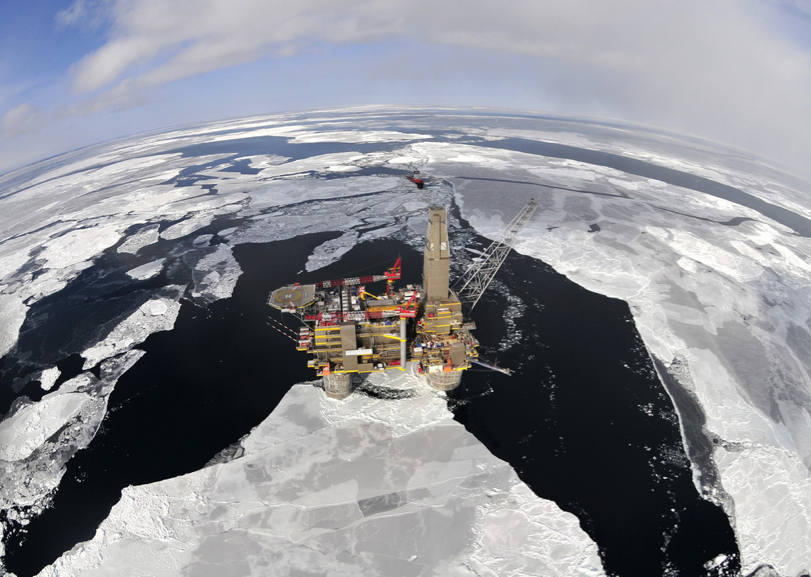FOLLOWING PRESIDENT OBAMA’S final approval of Royal Dutch Shell’s Arctic oil drilling, Democratic presidential candidate Hillary Rodham Clinton parted ways with her own advocacy of the administration’s long-established Arctic policy. She did so in a 92 character Tweet:

But it was Secretary of State Clinton who helped design, promote and defend the Arctic policy framework upon which the Shell decision is based. What changed her mind?
On May 23, 2012, Secretary Clinton testified before the Senate Foreign Relations Committee regarding ratification of the Law of the Seas Convention (LOST). Arctic exploration was a central, thorny issue; the United States was the only Arctic nation that had not yet ratified. She and Senator John Kerry, committee chair and soon-to-be Secretary of State, were of one mind regarding the strategic importance of securing “certainty” for American rights to the Arctic’s oil and mineral reserves. In Clinton’s words:
We benefit from [LOST’s] provisions on offshore natural resources. As a country with an exceptionally large area of sea floor we benefit from our ability to extend our continental shelf and the oil and gas rights on that shelf.
Let’s pick it up from EarthDesk, August 8, 2012, Sitting on Top of the World: The Rush to Exploit the Melting Arctic:
The Obama administration’s continuing failure to achieve treaty ratification has been a bitter one. . . Secretary of State Hillary Rodham Clinton testified:
As the Arctic warms and frees up shipping routes it is more important that we put our navigational rights on a treaty footing and have a larger voice in the interpretation and development of the rules because it won’t just be the five Arctic nations, you will see China, India, Brazil, you name it, all vying for navigational rights and routes through the Arctic.
After a cold reception from key members, Kerry postponed a committee vote to keep it “out of the hurly-burly of presidential politics.” There has been no progress since. He later wrote in Politico:
We’ve dealt ourselves out of the game that’s unfolding right before us. . . [LOST] can strengthen our hand against China and others, which are staking out claims in the Pacific, the Arctic or elsewhere. It is designed to give our oil and gas companies the certainty they need to make crucial investments to secure our energy future. It puts our telecommunications companies on equal footing with foreign competitors. And it will help secure access to rare earth minerals, which we need for computers, cellphones and weapons systems that allow us to live and work day in and day out.
«« »»
The following year, the administration rattled its saber for the world to hear with its May 13, 2013 National Strategy for the Arctic Region, formulated with Secretary Clinton. It equated America’s right to the Arctic’s oil and mineral resources with American national security and promised:
We will enable our vessels and aircraft to operate, consistent with international law, through, under, and over the airspace and waters of the Arctic, support lawful commerce, achieve a greater awareness of activity in the region, and intelligently evolve our Arctic infrastructure and capabilities, including ice-capable platforms as needed. U.S. security in the Arctic encompasses a broad spectrum of activities, ranging from those supporting safe commercial and scientific operations to national defense.
Candidate Clinton did not offer an extended rationale for today’s reversal of support for a policy she once believed necessary to the American economy, security and defense, and indeed helped craft. Twitter is convenient that way.










